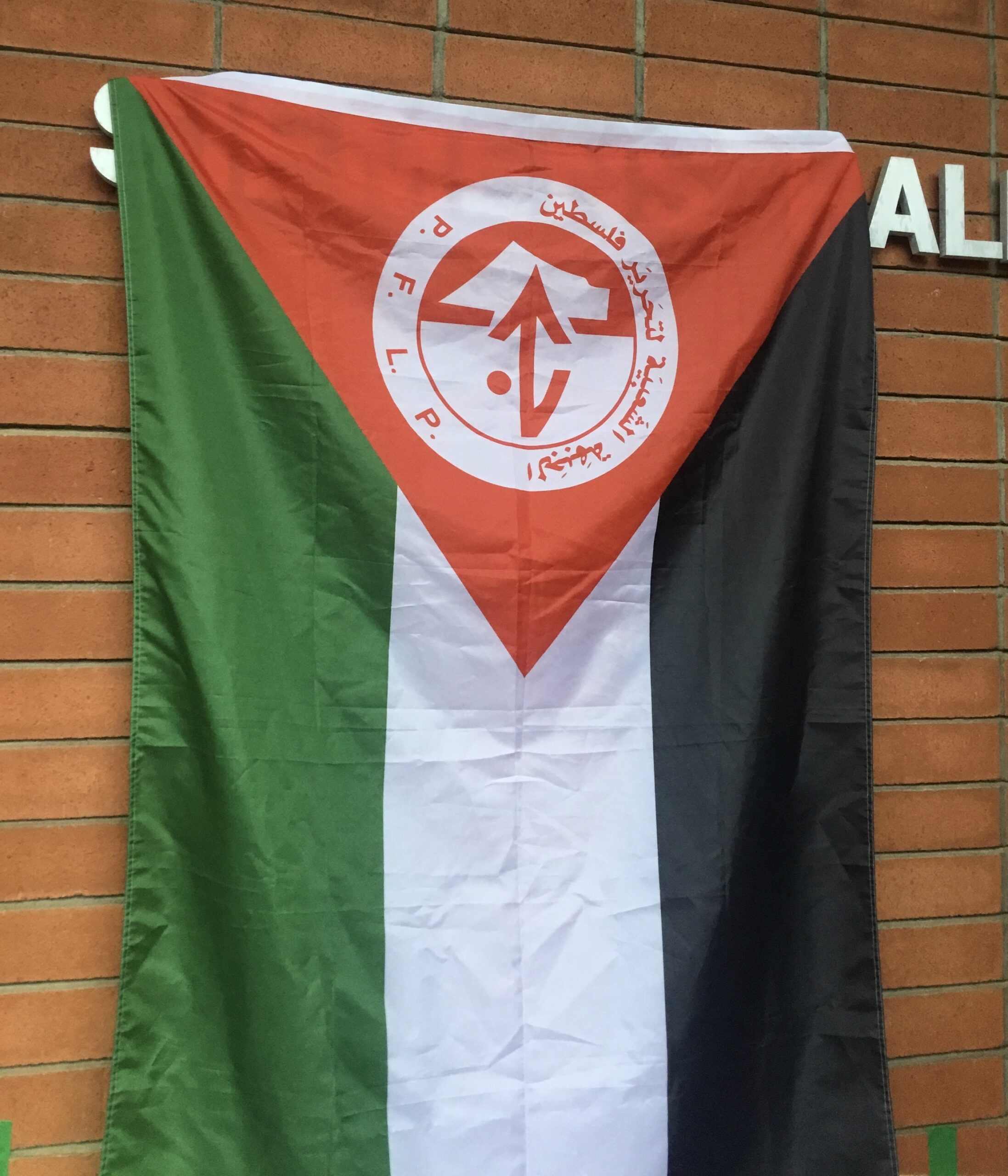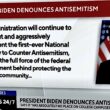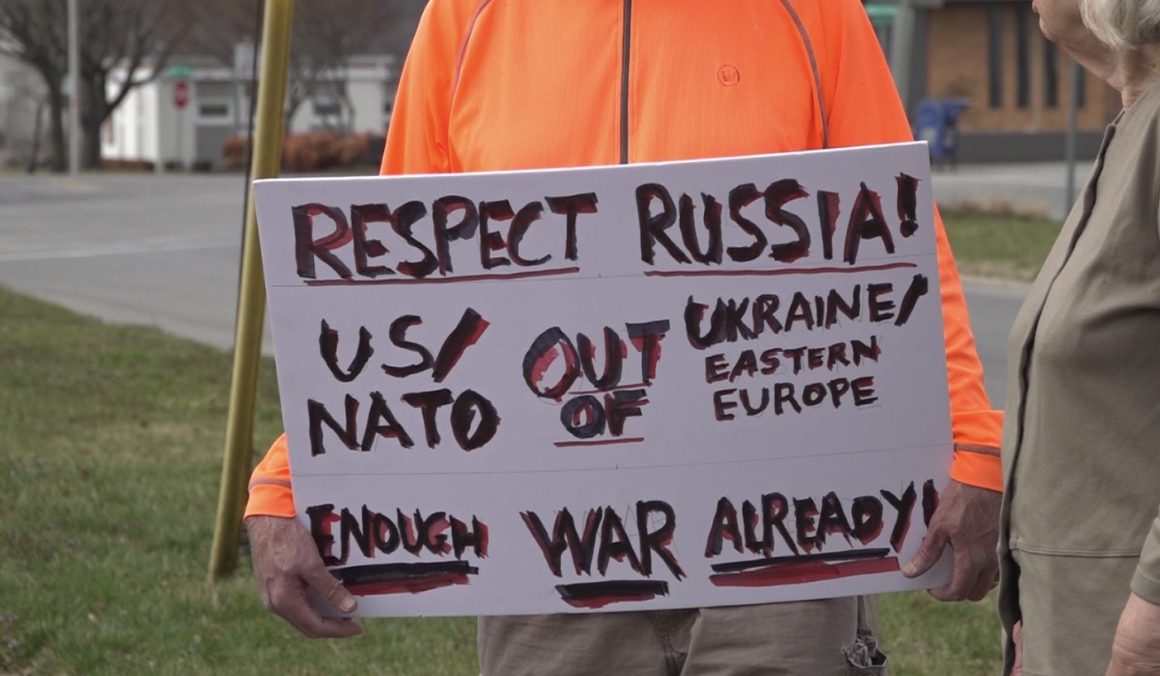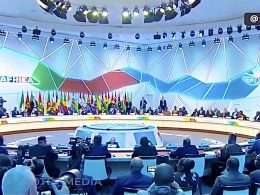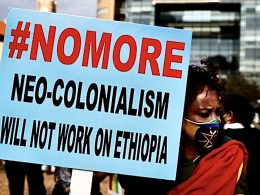The attempts by groups like ANSWER to isolate and censure the recent attempts at building a multi-tendency antiwar coalition have been proven to be totally without justification. ANSWER, and the other forces that attacked this February’s Rage Against the War Machine rally, weren’t trying to help us find what’s best for the class struggle; they were doing nothing more than attempting to maintain their monopoly over organizing and discourse spaces.
Their disavowing Russia’s anti-imperialist actions to appeal to liberals, and their rejecting any project to reach people who aren’t liberals, exemplify Democratic Party tailism. Tailism that, by design, can’t produce a genuine threat towards the ruling class. One isn’t capable of getting out of the movement and into the masses; of going lower and deeper to find the real masses; when they denounce all projects which can realistically expand the movement beyond a minority. By attacking the RAWM rally on the basis of a purity fetish, and by extension making themselves hostile towards the long-term coalition that the rally has produced, the Democrat tailists have furthered their investment in a strategy that’s ineffectual. And now that we’ve had over half a year to see how well the coalition’s experiment would go, we’re starting to see undeniable evidence that the coalition’s decision to forsake Democrat tailism was how to attain success.
Firstly: we’ve become able to call 2023 the best year for the antiwar movement in decades. We’ve seen enough antiwar events, both national and local, for anti-imperialism to now have an amount of organizing relevance which is comparable to that of strikes. And what makes these events more of a long-term threat towards the state than history’s far bigger past antiwar actions is that these events have been led by forces which are fully independent from the Democratic Party.
Whereas the anti-Bush demonstrations were able to be defined by groups like ANSWER, this year’s anti-NATO protests have been defined by the coalition between libertarians and pro-Russian communists. ANSWER’s involvement has been prompted by a desire not to look bad in comparison to that coalition. And its dishonorable actions have exposed it as being not worthwhile for principled communists to build relationships with. We’re finally building an iteration of the movement that the Democratic Party has no leverage over, while the Democrat tailists are seeing their perceived credibility shrink.
Secondly: this success at rallying the people against the war machine, and at doing so in ways not compromised by liberal ideas, has contributed to an antiwar consciousness shift among the majority of the people. This month, a survey showed that a little more than half the country now opposes sending further aid to Ukraine. This is consistent with a decline in public support for the war effort that’s been happening at least since last fall. Would this threshold of majority opposition towards Ukraine have been crossed if no anti-imperialist coalition had been created? Perhaps eventually, but this wouldn’t have happened so soon. And less of the people who make up this antiwar majority would be as advanced in their consciousness as they now are.
If the liberal tailists had gotten what they wanted, and no diverse antiwar coalition had come about, the movement against imperialism would still be in a bleak situation, like it was a year ago. What exists of the movement would still be dominated by orgs that aren’t interested in taking action against empire until spontaneous actions prompt them to do so, and that are more concerned about gatekeeping who’s “acceptable” within the movement.
Not only would the anti-imperialist cause be in a weaker standing; the class struggle would be far less advanced. The state can’t be defeated until we’ve sufficiently combated imperialism’s psyops, and the class struggle can’t bring about workers victory until it’s been sufficiently freed from the opportunists. Which under our present conditions means freeing not just the antiwar movement; but the movements for workers rights, social equality, environmental justice, Native liberation, and so on; from the liberal tailist politics that ANSWER and its parent org PSL represent.
The communists who’ve decided to side with Russia, and to enter into an anti-imperialist coalition with formations not on the left, have undertaken a project to bring American communism back to its former strength. To the state that it was in when it was led not by the “red libs” in groups like ANSWER, but by figures like Gus Hall and Henry Winston. Communists whose upbringings had taken place prior to the proliferation of Frankfurt School ideas during the 1960s, wherein younger radicals like Angela Davis absorbed the revisionist propaganda of CIA “Marxists” like Herbert Marcuse. Groups like PSL act the way they do because they’re the ideological heirs to this revisionist theory, which is based in petty-bourgeois radicalism.
As Hall wrote, this is a type of radicalism that incentivizes a practice of isolating oneself from the people, like PSL has done by rejecting the diverse anti-imperialist coalition:
All variations of petty-bourgeois radicalism come into conflict with the class approach to struggle. They reject the class struggle as the vehicle for social progress. They reflect the individualism, the lack of class identification of petty-bourgeois elements generally. They reject policies and tactics that are based on mobilizing the working class–the one class history has designated as a basic contingent in the struggle for social progress. In fact, petty-bourgeois radicalism rejects the role of the one revolutionary class in society.
Thus the very premise of petty-bourgeois radicalism is that it is impossible to win the working class in the struggle against capitalism. From this it follows that mass concepts of struggle are not possible, necessary or realistic. This leads to actions based on small elite groups––or to individual action. Because this concept is not concerned with winning over masses, it promotes and condones actions that alienate masses. There is an inner logic to this path. Specific actions are taken because there is a lack of confidence in mass–in class–actions. These ill-considered actions result in widening the gap between the petty-bourgeois radical movements and the masses. This widening gap then becomes “proof” that you cannot win masses and therefore the line of conduct of these movements is justified. Each step leads to a further isolation. This is the inner logic of petty-bourgeois radicalism.
We can identify a clear connection between this anti-popular dogma, Marcuse’s teachings, and the types of ultra-leftist theory that Winston in particular repudiated. As a Black Marxist, Winston especially had reason to combat the kinds of ideas which seek to lead revolutionary passions among oppressed peoples towards counter-productive practices. As Winston wrote, these practices come from certain ahistorical ideas; ideas that portray the conditions of racially and nationally oppressed workers as being more different from the conditions of white workers than they truly are:
It is ironic that many of these radicals, who claim that Marxism is European in origin and must be revised in order to apply to the Black people in the U.S., advance theories based on revisions of Marxism by such Europeans as Herbert Marcuse, Leon Trotsky and Regis Debray, as well as the Trotsky-like revisions to be found in the “thought” of Mao Tse-tung. It was especially under the influence of Marcuse and Maoism that the New Left radicals began to be attracted to one or another pseudo-revolutionary theory, including the concept of an “’internal colony” of Black people in the U.S.
While Marcuse’s ideas are not identical with “the thought of Mao,” the views of both stimulated anti-Marxist misconceptions of the world revolutionary process, the historic role of the working class and its relationship to the liberation struggles of oppressed people, and the imperative need for strategies based on the specific features and historic development of each country, each working class and each national liberation movement. During every upsurge in the people’s struggles, especially those of the mainly working-class Black people, there is a more extensive activation of counter-measures designed to sustain disunity and block alliance between Black and white workers, together with the Black people as a whole, against corporate monopoly.
It’s no surprise that the central argument of the left opportunists who’ve attacked the RAWM coalition has involved race. One of the major resources these groups and their supporters have used to try to discredit the idea of such an anti-imperialist coalition was a Black Agenda Report article that accused the Marxists within the coalition of betraying the Black liberation struggle. The charge was that these Marxists were supposedly failing to challenge whatever backward beliefs the other whites involved have.
When you truly look at the reasoning behind the article’s arguments, you find it’s based in innuendo. The same kind of innuendo that’s long been used to undermine interracial solidarity from a “left” standpoint, where workers from doubly oppressed groups are told they can never trust any of the workers who aren’t oppressed to the same extent. Not only do such arguments naturally exaggerate the contradictions within the orgs they attack; they imply that all the pro-Russian communists involved can’t be trusted to advance anti-racism. Which, unless you can point to direct evidence of these communists being beyond hope for acting in solidarity, is an unfalsifiable claim. A claim based in suspicion that’s simply not necessary.
If we want to be serious about freeing the class struggle from Democratic Party co-optation, we have to start taking the opportunities for achieving this goal. The political actors who have an interest in gatekeeping the struggle will never run out of reasons to say we should reject these opportunities. Therefore, somebody whose goal is to do what’s best for the class struggle shouldn’t take them seriously. Apply criticism to something where necessary, just don’t discard that thing should it prove to be overall advancing the anti-imperialist cause. And the project to unite the different antiwar elements has shown itself to represent that net positive.
————————————————————————
If you appreciate my work, I hope you become a one-time or regular donor to my Patreon account. Like most of us, I’m feeling the economic pressures amid late-stage capitalism, and I need money to keep fighting for a new system that works for all of us. Go to my Patreon here.
To keep this platform effective amid the censorship against dissenting voices, join my Telegram channel.
